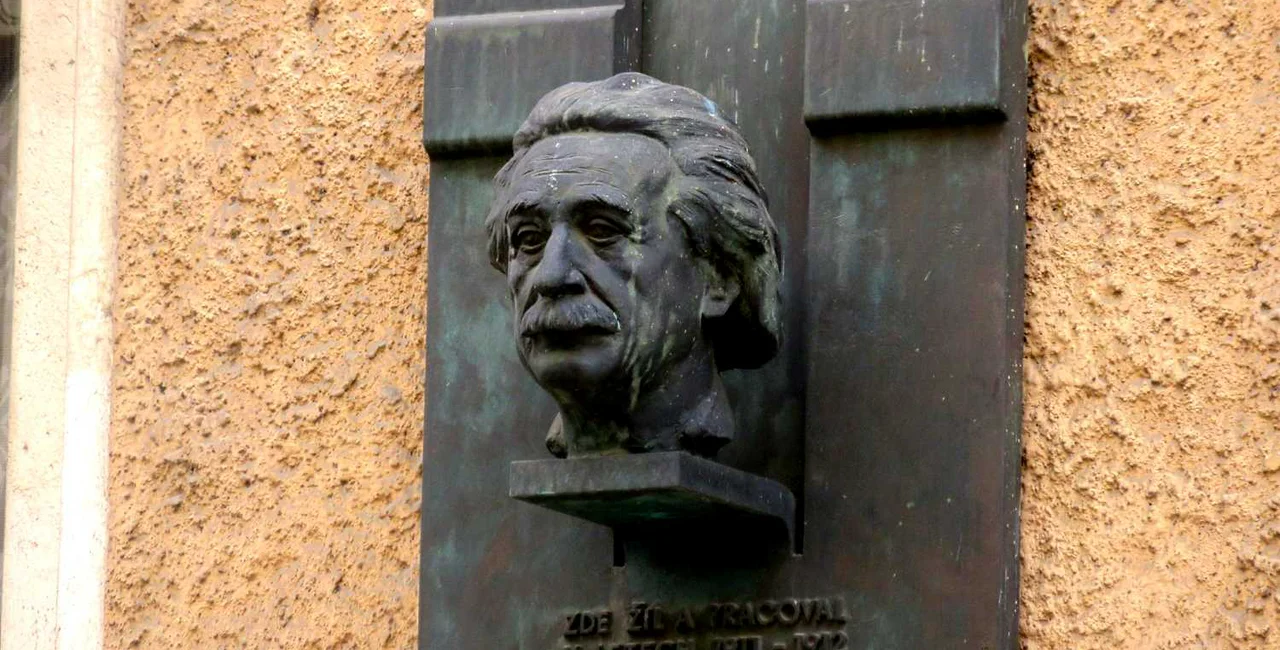World-renowned scientist Albert Einstein passed away 65 years ago this month, on April 18, 1955, in Princeton, New Jersey. But long before that he spent a crucial 16 months in Prague as professor at what was then called the German University.
The future Nobel Prize winner, then aged 32, lived in Prague in 1911–12, along with his wife and children. While he loved the historical beauty of Prague, his wife felt out of place and was the main reason the couple moved on.
He spent some of his free time with the city’s Jewish arts and intellectual set, reportedly meeting with Franz Kafka at evening soirees at a private salon in Old Town Square and relaxing with him and others at Café Louvre, which still makes much of his occasional presence in their advertising.
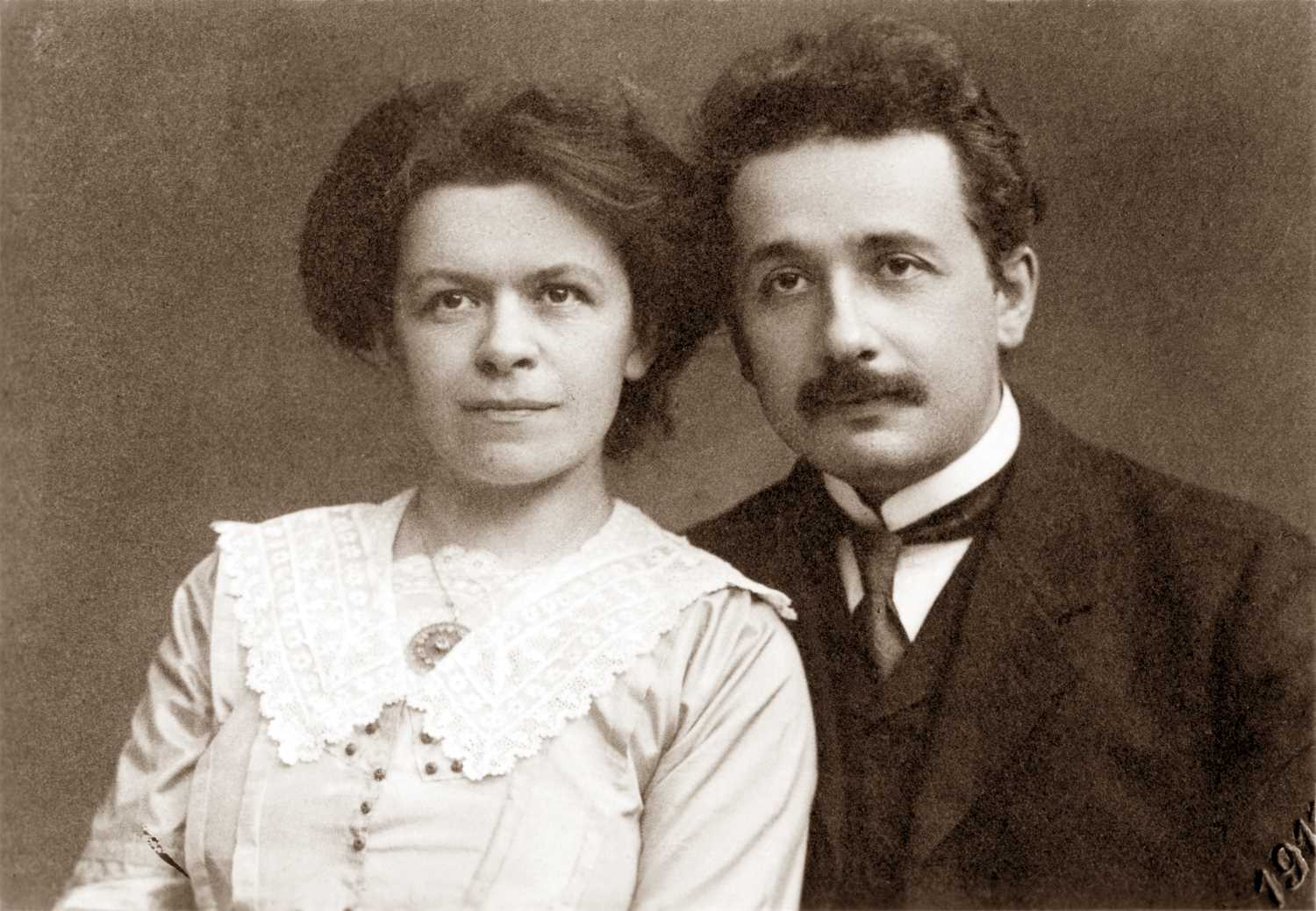
During his sojourn in Prague he also worked on his the general theory of relativity, which was published in 1916.
The German University in Prague (Deutsche Universität Prag), now part of Charles University, in 1910 had a vacancy for a professor of physics, as Ferdinand Lippich was retiring. The school had a good reputation and attracted other top names such as speed-of-sound scientist Ernst Mach and Sanskrit scholar Moritz Winternitz.
The school put Einstein, who has already published a few papers and had been teaching in Bern and Zurich, on a short list with two other rising academic stars, Gustav Jaumann and Emil Kohl. The Ministry of Culture and Education in Vienna approved Einstein for the post, as Prague was then part of the Austro-Hungarian Empire.
Einstein was ready for a change of scenery, and accepted the offer and took up his new post in April 1, 1911. His lectures took place at Viničná 1594/7, which is now part of the Faculty of Science of Charles University and home of the Hrdličká Museum of Anthropology (Hrdličkovo muzeum člověka). A black an-and-gold plaque with Einstein’s profile is inside the building in the entry way.
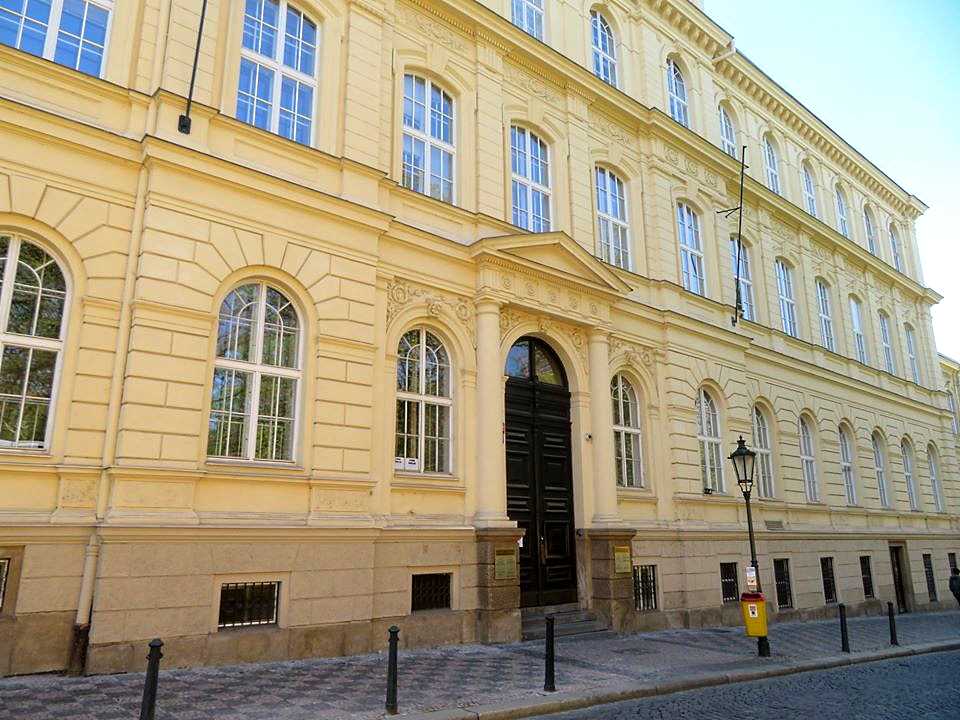
PARTNER ARTICLE
As a professor, he was required at least on occasion to wear a black gown with gold ribbons and a three-corner hat, plus a symbolic sword. “Here Einstein’s humor was put to the test,” biographer Johannes Wickert wrote.
His salary was 8,872 Austro-Hungarian kroners per year, and he taught five hours a week with two more exercise hours. He had 20 students including two women.
Einstein, his wife Mileva and sons Hans Albert and Edward, plus a maid, moved into a three bedroom flat in a then brand-new apartment building on Lesnická 1215/07, then called Trebížského Street, in Prague’s working-class Smíchov district. The new building had electricity installed, a novelty at the time. A plaque with a sculpture of Einstein’s head is on the front of the house.
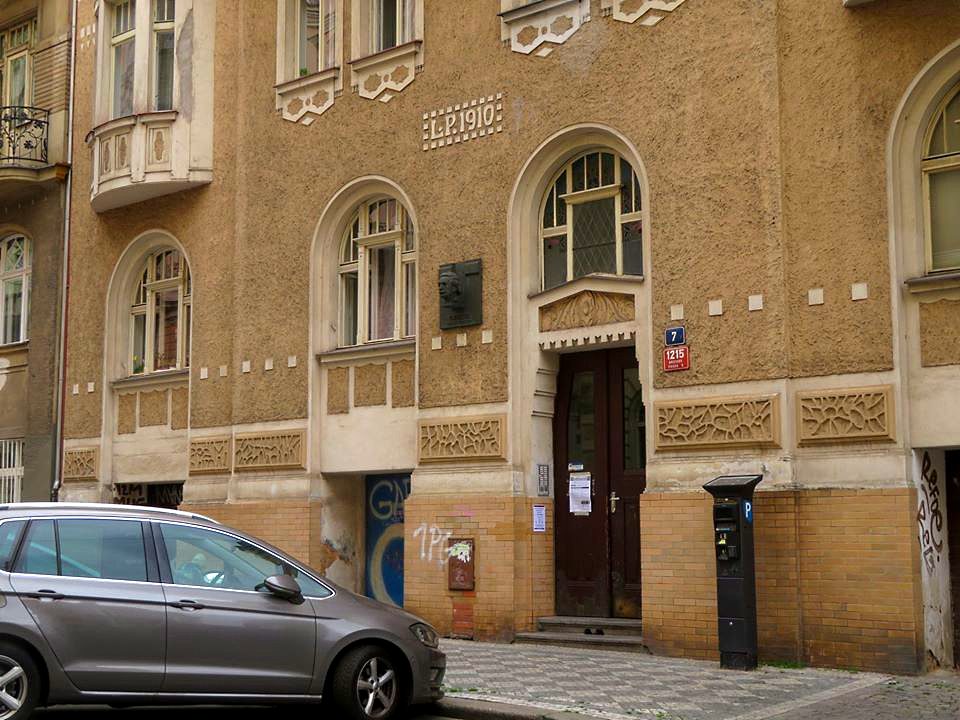
His journey to work was just under 20 minutes – retracing his steps, he would cross Palacký Bridge, walk through Na Moráni street, past Faust’s house, and then he would reach Viničná Street 7, which now belongs to the faculty of natural sciences of Charles University. In addition to that post, he lectured theoretical physics at the Klementinum, today’s Slavic Library, where his lectures in fact received much larger audiences.
Einstein liked the historical parts of Prague such as Charles Bridge and Kampa. He was unimpressed by the pollution in Prague, as Smíchov was a rather industrialized area at the time. The brick chimneys of many long-abandoned factories can still be seen. He also wouldn’t drink Prague’s tap water unless it had been boiled first.
Café Louvre in the early 20th century was the main hangout for Jewish intellectuals of the time, while Czechs preferred Café Slavia, across the street.
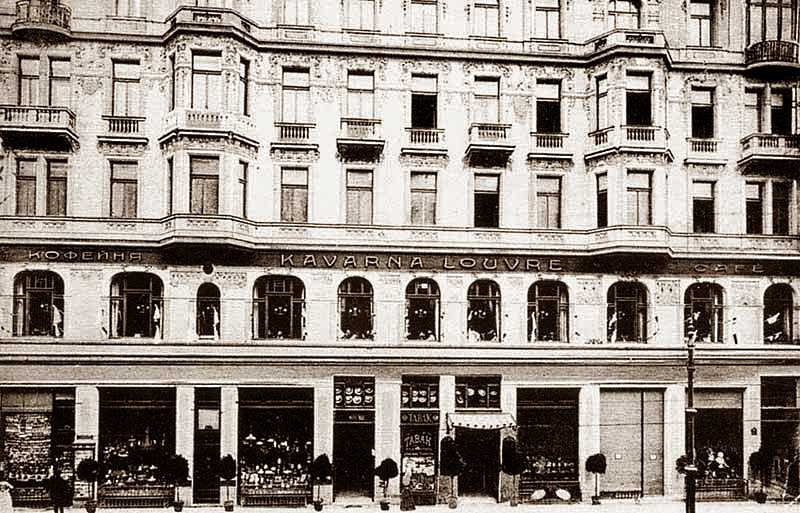
In Louvre, Einstein would meet with budding writer and insurance clerk Franz Kafka. He also attended lectures by esoteric philosopher Rudolf Steiner, which were held in the Café. Einstein was reportedly impressed by Steiner’s opinions on non-Euclidian geometry.
Einstein would also visit Berta Fanta’s salon on Old Town Square, and a plaque with his likeness in on the outside wall of Staroměstské náměstí 17, called At the Unicorn (U Jednorožce). A higher plaque on the building shows a man with a lamb that has a single horn, leading the building to be called At the Stone Lamb by some people.
The salon’s other guests often included Franz Kafka, who would read from his unfinished works.
Einstein would play Mozart’s Violin Sonata, usually with pianist Ottilie Nagel as an accompanyist. Max Brod, who is famous for organizing and publishing Kafka’s works rather than destroying them as Kafka had requested, is also supposed to have tried his hand on the ivory keys.
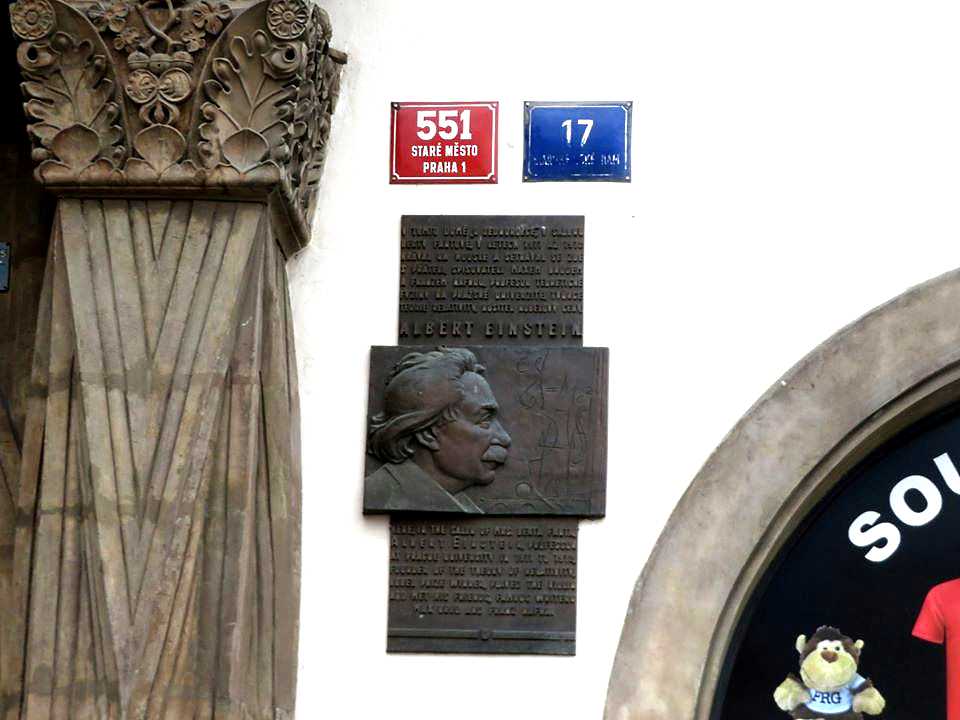
He wrote about 11 theoretical papers in Prague, covering various aspects of the theory of relativity, gravitation, radiation mathematics, thermodynamics and quantum physics. He made two important propositions in Prague on the deflection of light and the gravitational redshift.
In his foreword to the 1923 Czech edition of his popular book About the Special and General Theory of Relativity in Plain Terms, Einstein praised Prague as the city that helped him develop some of his ideas.
“I am pleased that this small book … should now appear in the native language of the country in which I found the necessary concentration for developing the basic idea of the general theory of relativity, which I had already conceived in 1908. In the quiet rooms of the Institute of Theoretical Physics of Prague’s German University in Viničná Street, I discovered that the principle of equivalence implies the deflection of light rays near the sun by an observable amount,” he stated.
His then-wife Mileva was not happy in Prague, as she didn’t speak Czech and had trouble adapting. The couple also began to fight constantly. She urged Einstein to take a different teaching job in Zurich after 1912. He said Prague was “so beautiful, it would justify living here a lot longer,” but his wife seems to have won the argument.
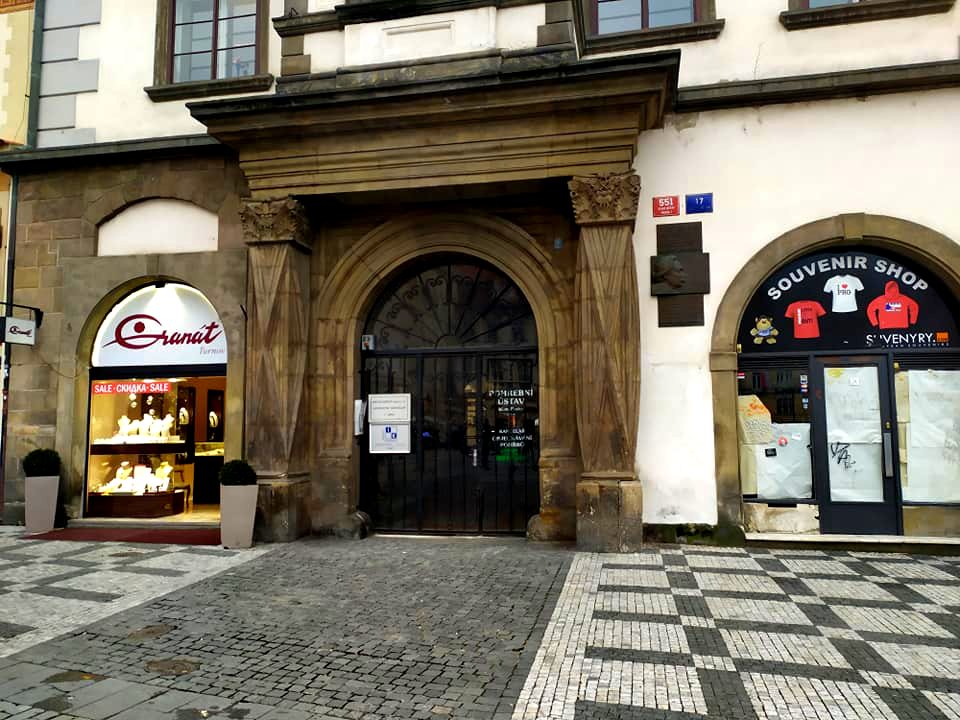
Einstein left Prague in the summer of 1912, after accepting another offer from the University of Technology in Zurich. His married life was increasingly turbulent, ending in a divorce in 1919, on the ground of “natural incompatibility.” Einstein then married his niece, Elsa, shortly after his divorce.
Einstein visited Prague again in 1921, the year he won the Nobel Prize, but did not stay. It was just a brief stop to discuss his ideas with Czech scientists. He would visit several more times including in 1932, just before emigrating to the United States.
But he did not forget the city. In 1950 he sent a telegram to the communist leader of Czechoslovakia, Klement Gottwald. The scientist implored the dictator to spare the life of Milada Horáková, who had been convicted of conspiracy and treason in a show trial, as well as other political prisoners. “They were all victims of German concentration camps,” he pleaded. “I am certain that they deserve to live.” The telegram had no effect, though, and Horáková was executed June 27, 1950.
In addition to the numerous plaques bearing his name and image, the street Einsteinova in Prague 10 – Petrovice was named after him in 1971.
In 1995, it was reported that the youngest son of Einstein from his second marriage was living in Prague under his adopted name Luděk Zakl (1932–2000). He was supposedly born at U Apolináře maternity hospital when the Einsteins were in Prague on a visit. The reason that the baby was given up, according to the theories, is that it would have complicated his plan to emigrate from Europe. His wife, Elsa, would have been 56 at the time. The truth will likely never be known.












 Reading time: 6 minutes
Reading time: 6 minutes 